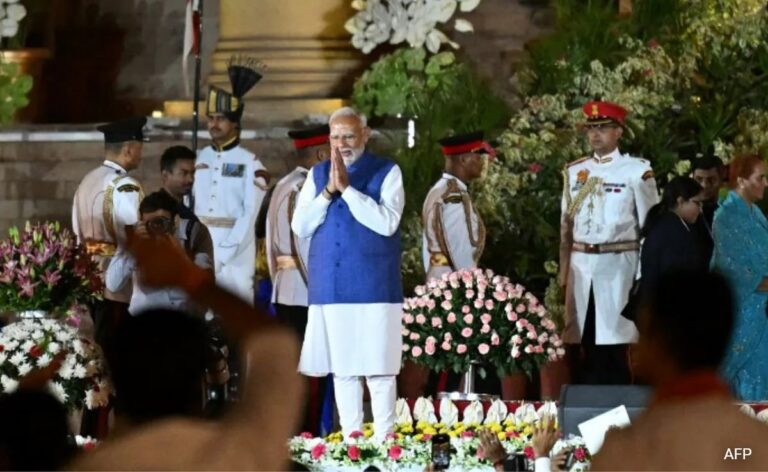
Modi is only the second prime minister after Jawaharlal Nehru to be elected for three consecutive terms.
New Delhi:
Narendra Modi was sworn in as India’s prime minister for a historic third term on Sunday, along with 72 yet-to-be-appointed ministers, including the BJP’s coalition partners who have provided crucial support to him in power. It will be the first time he has shared power with allies since taking office in 2014.
Here’s how foreign media covered the swearing-in ceremony of Prime Minister Modi, the second prime minister to be elected for three consecutive terms after Jawaharlal Nehru.
The New York Times
The New York Times reported that the political atmosphere in New Delhi has changed dramatically with the new government being sworn in. The paper said that Prime Minister Modi, who was denied a majority in Parliament, has turned to his diverse coalition partners, who now seem to be gaining importance and attention.
BBC
The BBC stuck to a more objective reporting style, without providing any analysis of Modi 3.0 and the election results, but noted that the ruling coalition won by a smaller margin than the exit polls had predicted, and that the election marked a “resurrection of India’s opposition.”
Al Jazeera
Al Jazeera reported that the loss of majority would test the BJP’s ability to ensure policy certainty in a coalition government, noting challenges the coalition could face as two of its veteran leaders, Nitish Kumar and Chandrababu Naidu, “have friends in the opposition” and “the opposition will tempt them.”
Bloomberg
Bloomberg captured the pageantry of the swearing-in ceremony, which was attended by 8,000 guests including foreign heads of state, business leaders and Bollywood stars. The paper noted that this marks the first time that Modi will share powers while assuming an expanded leadership role.
AFP
France’s AFP news agency provided full details of the event, from the medals to the coalition partners key to forming a government. Details of the new government have yet to be revealed, but AFP reported that the main coalition parties are demanding significant concessions in exchange for their support.

